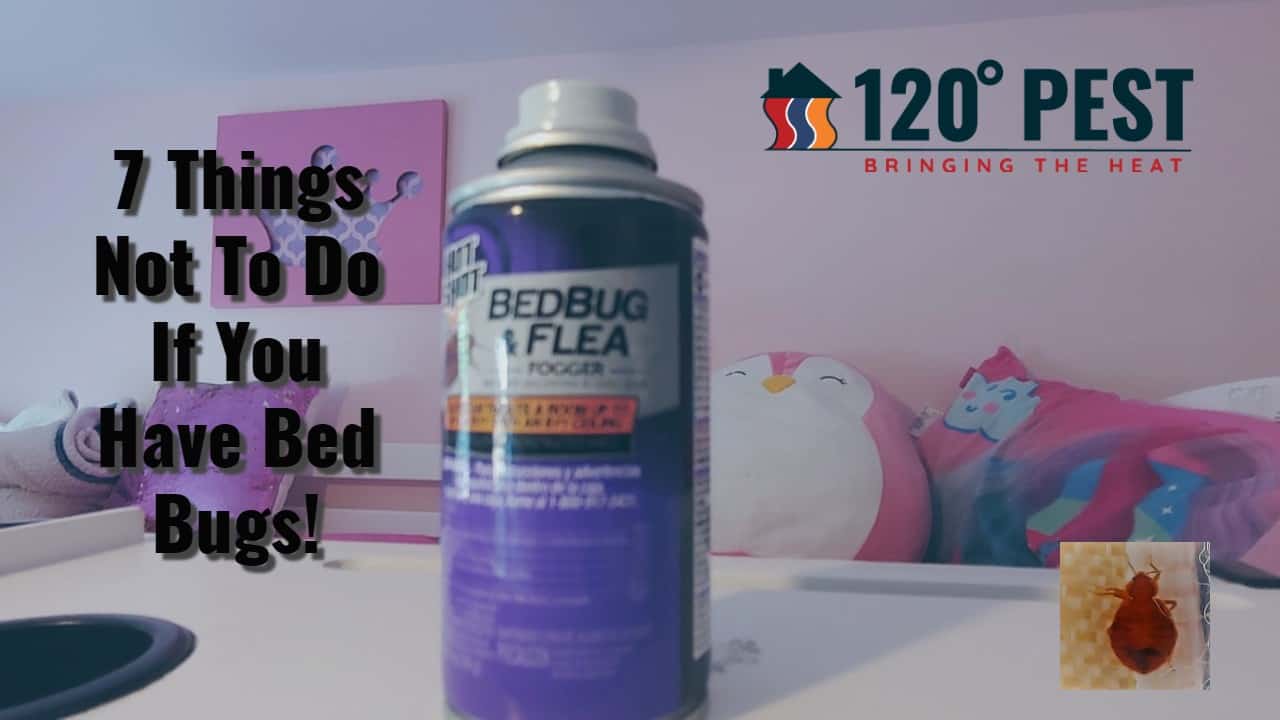7 Critical Mistakes to Avoid When Dealing with Bed Bugs
Introduction: Stay Calm and Act Smart Against Bed Bugs
Discovering a bed bug infestation can be overwhelming, but handling the situation calmly and correctly is essential for effective bed bug control. At 120 Pest Control in Atlanta, we believe an informed approach leads to quicker, safer results. Here are seven crucial mistakes you should avoid when dealing with bed bugs.
1. Don’t Panic — Bed Bugs Are Manageable
Bed bugs can be controlled with a proper inspection and proper treatment methods whether that be a professional thermal treatment or a targeted chemical applications.
2. Don’t Ignore the Clutter Under Your Bed
Items stored under your bed can become hidden harborage spots for bed bugs. If you suspect an infestation:
-
Remove and declutter items beneath your bed.
-
Vacuum thoroughly.
-
Place any suspected bed bug evidence (bugs, fecal smears, skins) in a sealed plastic bag to show an expert.
A clean, clutter-free space makes it easier for pest control professionals to inspect and treat the area effectively.
This will help the inspector be able to find bedbugs.
If you do see evidence of bed bugs, you can put it in a ziploc bag and show it to a professional who can identify if it is bedbugs. We do look for fecal smears, blood smears, skin casts, live bugs, and eggs. So just generally keep your room clean, and it will be helpful to the inspector.
3. Avoid Using Outdoor Pesticides Indoors
The Internet’s full with DIY options for you to try to kill bedbugs yourself. Be careful, do not use products that are not meant to be used indoors. If you use outdoor, agricultural or lawn products inside your house you can make your family and your pets very sick.
4. Be Cautious When Buying Bed Bug Products Online
The Internet’s a great place to buy things. We all shop online if you’re going to buy products online, please make sure the labels are in English. If they’re not in English, don’t use them. You don’t know how they were manufactured, what’s inside them, or if they’re safe?
5. Never Apply Pesticides Directly to Your Body
Do not apply pesticides directly to the body of you or anybody else and unless instructed by a doctor. Applying pesticides to yourself or others can cause severe health risks unless specifically directed by a medical professional.
6. Don’t Use Indoor Foggers or “Bug Bombs”
Foggers or “bug bombs” are ineffective and just don’t work. Professional pest control companies do not rely on fogging because it doesn’t reach the bed bugs where they hide. The active ingredients inside foggers and bombs chase the bugs deeper into harborages or other rooms.
7. Don’t Rely on Sun Exposure in Black Bags
Placing your items your clothes in a black bag out in the sun will not kill the bedbugs. It is a popular myth that you could do this. The bags will not heat up to 120 degrees to kill them even on a 95-degree day.
You can place clothes in the dryer 30 minutes on high heat to kill bed bugs.
If you do have bed bugs or you think you have bed bugs, please give us a call. We are 120 Pest in Atlanta, Georgia. We’ll be happy to talk with you about your situation. We can perform an inspection and then give you a treatment method that’s appropriate for you and your house.
Conclusion: Partner with the 120 Pest Professionals for Bed Bug Elimination
Dealing with bed bugs requires a smart, methodical approach. By avoiding these seven common mistakes, you can help ensure your infestation is handled safely and efficiently.
If you suspect a bed bug problem, contact 120 Pest Control in Atlanta, Georgia. Our licensed experts provide thorough inspections and customized treatment plans to eliminate bed bugs quickly and effectively.
Call Us Today or Visit Us Online at 120 Pest Control — Your Trusted Bed Bug Experts in Atlanta.




